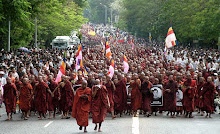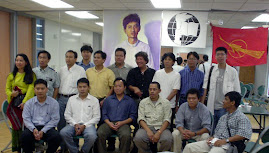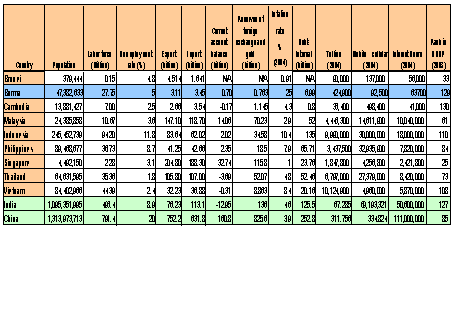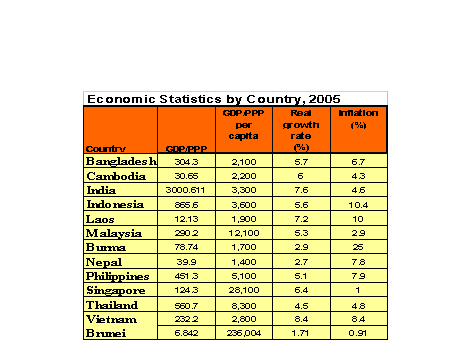

YANGON (Reuters) - Cyclone-hit Myanmar has enough rice to feed its people, the ruling junta said on Wednesday, accusing foreign aid agencies of presenting a false picture of the devastation in the Irrawaddy delta rice bowl.
In remarks reported by official media, National Planning Minister Soe Tha rejected warnings that the former Burma's food security could be "jeopardized" if delta farmers cannot plant a new rice crop by the end of July.
"Some organizations were spreading groundless information such as there is or will be a shortage of rice in Myanmar," Soe Tha was quoted as saying at a meeting with international relief agencies on Tuesday.
"We have enough rice and we can distribute sufficiently," he said, although the newspaper reports did not give a detailed picture of the country's rice supplies.
The U.S. Department of Agriculture (USDA) said on Tuesday Myanmar's rice crop will be smaller than expected after the May 2 cyclone, which flooded paddy fields with seawater, damaged irrigation systems and destroyed supplies of rice seed.
The USDA cut its previous crop forecast by 600,000 tones to 9.4 million tonnes to reflect "a reduction in area and an expected decline in average yield due to the effects of the storm damage from Cyclone Nargis in early May."
Last week, the U.N. food agency said of the 1.3 million ha (3.2 million acres) of paddy in the cyclone-hit areas, 60 percent was affected by the storm.
About 200,000 ha (500,000 acres) were too damaged for planting, the Food and Agriculture Organisation (FAO) said.
Nearly six weeks since the storm left 134,000 dead or missing and another 2.4 million people destitute, some paddy land has been drained of seawater.
But farmers still faced many hurdles to planting the monsoon crop, including a lack of shelter, rice seed, fertilizer and ploughing animals, most of which were killed.
"If this is not done in a timely manner, poor farmers, who have already lost their assets, will suffer from hunger and poverty for a long time, while national food security will be seriously jeopardized," the FAO said.
RICE IMPORTS
Myanmar was the world's largest rice exporter when it won independence from Britain in 1948, but lost that title to neighboring Thailand after four decades of military rule and disastrous economic policies.
With little money to buy other food, people in Myanmar consume an average 44 lbs (20 kg) of rice per month, compared to 35 lbs in Vietnam and 15 lbs in Asia as a whole, the FAO said.
The U.N. World Food Programme (WFP), which was feeding 2 million people in Myanmar before the cyclone, has sought to buy food locally to feed a minimum of 750,000 people in the delta.
"We may have to continue assistance in the delta for six months or until the next harvest," WFP spokesman Paul Risley told Reuters.
"We will continue to purchase food locally but we will likely have to seek imports of food stocks, especially rice to replace rice that was lost in the delta," he said.
The WFP recently signed a local contract for 10,000 tonnes of rice, corn, beans, lentils and other pulses -- roughly six weeks of food assistance.
It also received 400 tonnes of rice from a French naval ship that was not allowed to deliver aid directly to Myanmar.
(Additional reporting and writing by Darren Schuettler; Editing by Ed Cropley and Jeremy Laurence)



















No comments:
Post a Comment